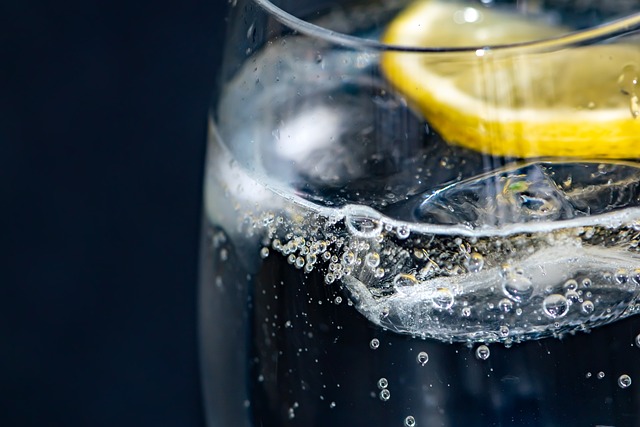Cold water immersion therapy, an ancient practice with modern popularity, enhances sleep quality and overall well-being. Techniques like cold plunges and ice baths stimulate the parasympathetic nervous system, reducing stress and inflammation. Benefits include improved circulation, quicker muscle recovery, better immunity, and mental clarity. Athletes use it for post-exercise recovery, while others turn to it for sleep improvement. Safety precautions, like consulting healthcare professionals and gradual exposure, are crucial. Cold water immersion offers a natural, effective alternative to cryotherapy for various wellness goals.
Cold immersion techniques, such as cold water plunging and ice baths, are gaining popularity as effective methods to enhance sleep quality. This ancient practice, with historical roots in traditional cultures, has modern science backing its numerous health benefits. By exposing the body to cold water, we stimulate a range of physiological responses that promote relaxation and rest. From athletes to individuals seeking better sleep, cold immersion therapy offers a natural, potentially life-changing approach to improving overall well-being and recovery.
Understanding Cold Immersion Therapy and Its Historical Roots
Cold immersion therapy, an ancient practice with historical roots stretching back thousands of years, has gained modern popularity for its profound benefits to sleep quality and overall health. This therapeutic technique involves exposing oneself to cold water, typically in the form of a cold plunge or ice bath, for a short period. The concept is not new; cultures worldwide have long embraced cold water immersion for its healing properties.
Its historical use ranges from ancient Greek and Roman civilizations, where people would bathe in cold springs for medicinal purposes, to traditional practices in Japan and Northern Europe. Today, it’s a go-to recovery technique for athletes seeking an edge in performance and faster muscle recovery. Beyond that, the benefits of cold water therapy extend to promoting better sleep, reducing inflammation, boosting the immune system, and enhancing mental clarity, making it a valuable tool in modern wellness routines.
The Science Behind Cold Water's Impact on Sleep Quality
The Science Behind Cold Water’s Impact on Sleep Quality
Cold water immersion therapy, such as cold plunge therapy or ice bath therapy, has gained popularity among athletes and health enthusiasts for its wide-ranging benefits. The practice involves submerging oneself in cold water, typically below 59°F (15°C), for a short period. This sudden exposure triggers a series of physiological responses in the body. One of the key mechanisms is the stimulation of the nervous system, specifically the parasympathetic branch, which promotes relaxation and slows down heart rate and breathing. This reaction helps to ease stress and anxiety, two factors known to disrupt sleep.
Additionally, cold water exposure increases blood flow back to the core of the body, a process known as vasoconstriction followed by rapid re-warming (vasodilation). This cyclic exchange enhances circulation and supports muscle recovery, which is particularly beneficial for athletes. By improving blood flow, cold immersion techniques also contribute to better nutrient delivery and waste removal from cells, further aiding in post-exercise recovery. The anti-inflammatory effects of cold water therapy have been linked to reduced muscle soreness and quicker recovery times, allowing individuals to get a more restful and restorative sleep.
Practical Applications: Using Cold Immersion for Better Rest
Cold water immersion therapy has gained popularity as a powerful tool to enhance overall well-being, and its benefits extend to improving sleep quality. This practice involves submerging oneself in cold water, typically an ice bath or a cold plunge, for a short period. Athletes often use cold plunge therapy after intense workouts to aid muscle recovery; however, the technique has broader applications for better rest.
The benefits of cold water therapy include reducing inflammation, boosting the immune system, and promoting faster recovery from physical exertion. When you expose your body to cold water, it triggers a series of physiological responses. Blood vessels constrict, followed by vasodilation as your body warms up again. This process can help reduce muscle soreness and improve circulation, which is essential for optimal rest and repair. For individuals seeking alternatives to cryotherapy or looking for natural ways to enhance sleep, incorporating cold water immersion into their routines could be a refreshing and effective solution.
Safety Precautions and Considerations for Effective, Healthy Cold Plunging
When engaging in cold water immersion therapy, such as a cold plunge or ice bath, safety should always be your top priority. Before taking the plunge, ensure you have a clear understanding of your health condition and consult with a healthcare professional if you have any concerns, especially regarding heart conditions or low blood pressure. It’s crucial to gradually expose yourself to the cold; starting with lukewarm water and slowly lowering the temperature can help prevent shock to your system. Additionally, set a time limit for your immersion, typically between 2-10 minutes depending on your tolerance, and always have someone nearby for safety purposes, especially if you’re new to this practice.
Choosing the right environment is another key consideration. Avoid cold water immersion immediately after intense exercise or when extremely tired, as this can increase the risk of hypothermia. Instead, opt for a post-workout session or aim for a morning ritual. Always ensure proper hygiene by using clean water and considering protective gear like gloves to minimize skin exposure. Remember, the goal is to harness the benefits of cold water therapy while maintaining safety and comfort, making it an effective and healthy practice for enhancing sleep quality and overall well-being.
Cold immersion techniques, such as cold water plunging and ice baths, offer a promising alternative to traditional sleep aids. By harnessing the power of cold water, these therapies can significantly enhance sleep quality and overall well-being. Incorporating cold exposure into your routine may prove to be a simple yet effective way to improve rest and recovery, especially for athletes. However, it’s essential to approach this practice with caution, following safety guidelines to avoid any adverse effects. With proper precautions, cold water immersion therapy can be a game-changer in the realm of sleep improvement, providing a natural and revitalizing approach to better rest.
